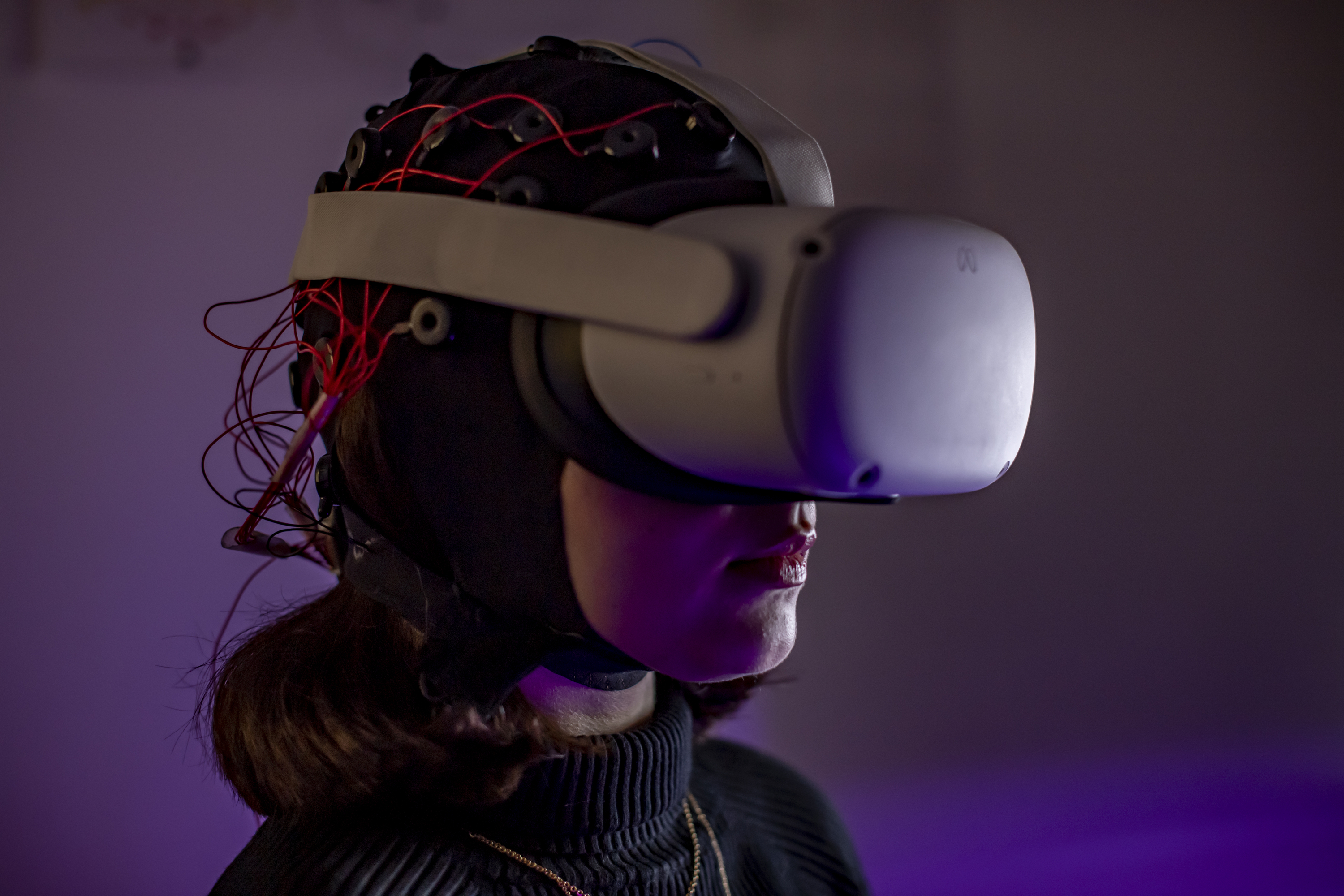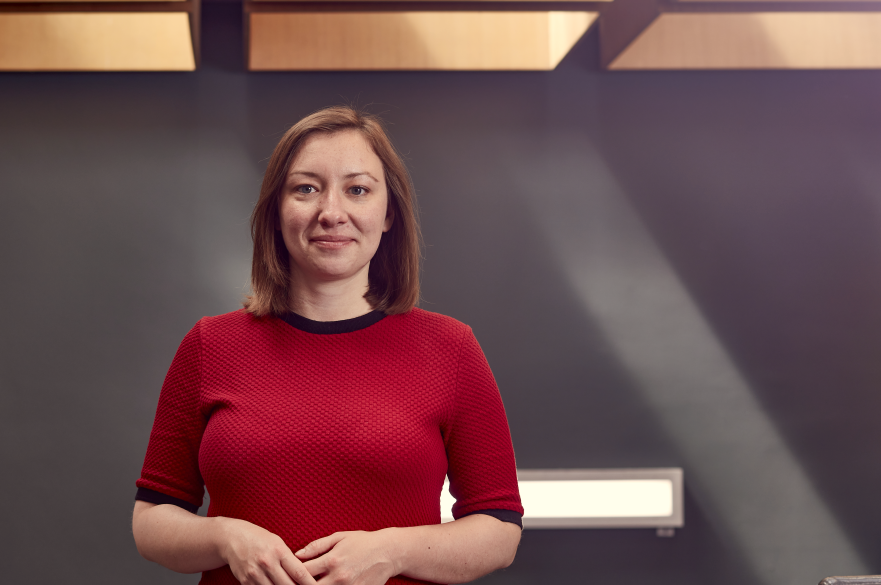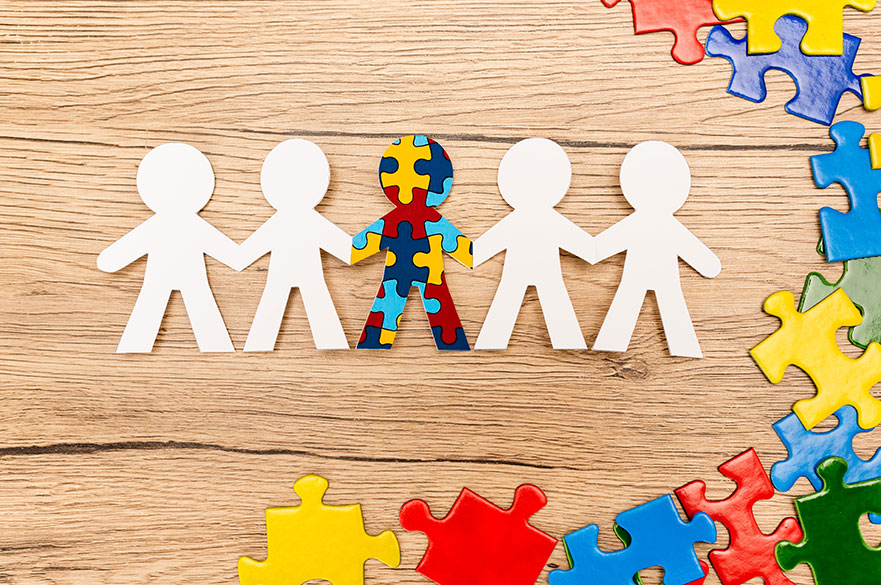Role
Senior Lecturer, Nottingham Trent University, Department of Psychology
Research affiliate, Social Body Lab, University of Oxford
NTU research groups: Groups, Identities, and Health, Evolution and Social Interaction
Career overview
Before moving to NTU in 2021, Bahar conducted a research fellowship at the University of Nottingham, and a postdoctoral fellowship at the Johns Hopkins University. Bahar completed her PhD in the University of Oxford, and her BSc (Psychology with Biology) and MSc (Cognitive Science) in the Middle East Technical University, Turkey.
Research areas
Bahar's research explores the following questions: How do people form social bonds using non-verbal behaviours? How does having strong social bonds affect mental health and wellbeing?
In answering these questions, Bahar focuses on mechanisms of synchronised movements (e.g., imitation, dance) and social norms. Built primarily on quantitative methods, her inter-disciplinary approach combines insights from developmental, social, cognitive and evolutionary psychology and anthropology.
More detailed information about Bahar's current research can be found on her personal website: https://www.bahartuncgenc.com
Current PhD Candidates:
- Dubheasa Mullins
- Michelle Louise Dodd
- Parmida Pakshir
- Pedro Ribeiro
External activity
Bahar regularly works with non-academic partners, features on the media and makes policy recommendations on topics of:
- Social connections and loneliness
- Social-cognitive development in childhood
- Behavioural change and social norms
- Health and climate behaviours
- Fostering young people's mental health and wellbeing
Bahar is an Associate Editor at Acta Psychologica, and regularly contributes to the broader academic community via peer reviews of journal articles and grants.
Sponsors and collaborators
Bahar's research has been funded by the Laureus Sport for Good Foundation, Oxford University, Child Mind Institute and Simons Foundation Autism Research Initiative. Bahar works extensively with researchers around the globe. Some of her most recent external collaborators include (in alphabetical order):
Freedom Foundation Ltd. (Nottingham)
Ophelia Deroy (Ludwig Maximillian University of Munich)
Adam Eggebrecht (Washington University)
Stefanie Hoehl (University of Vienna)
Stewart Mostofsky (Kennedy Krieger Institute)
Katie Slocombe (University of York)
René Vidal (University of Pennsylvania)
Sobana Wijeakumar (University of Nottingham)
Publications
For a full list of publications, please visit Bahar's Google Scholar page or ORCID page. Here are some of her key papers:
- Tunçgenç, B., van Mulukom, V., & Newson, M. (2023). Social bonds are related to health behaviors and positive well-being globally. Science Advances, 9-2.
- Howard, E., Ropar, D., Newport, R., & Tunçgenç, B. (2021). Social context facilitates visuomotor synchrony and bonding in children and adults. Nature: Scientific Reports, 11, 22869.
- Tunçgenç, B., El Zein, M., Sulik, J., Newson, M., Zhao, Y., Dezecache, G., & Deroy, O. (2021). Social influence matters: We follow pandemic guidelines most when our close circle does. British Journal of Psychology, doi: 10.1111/bjop.12491
- Tunçgenç, B., Pacheco. C., Rochowiak, et al., Mostofsky, S. H. (2020). Computerised Assessment of Motor Imitation (CAMI) as a scalable method for distinguishing children with autism. Biological Psychiatry: Cognitive Neuroscience and Neuroimaging. doi: 10.1016/j.bpsc.2020.09.001
- Tunçgenç, B. & Cohen, E. (2016). Movement synchrony forges social bonds across group divides. Frontiers in Psychology, 7(782). doi: 10.3389/fpsyg.2016.00782
- Tunçgenç, B., Fawcett, C., & Cohen, E. (2015). Rock with me: The role of movement synchrony in infants’ social and nonsocial choices. Child Development, 86(3). doi: 976-984. 10.1111/cdev.12354
Press expertise
Dr Tunçgenç is passionate about spreading the word of science, and welcomes media enquiries in her following expertise areas:
- Social connections and loneliness
- Social-cognitive development in childhood
- Behavioural change and social norms
- Health and climate behaviours
- Fostering young people's mental health and wellbeing
Please visit her personal website for a sample of Bahar's previous media appearances. Below are some of the news articles that featured Bahar's work:
BBC News: Dancing can bring people together, say researchers
Daily Mail: Dancing really DOES break the ice: Children who dance together feel more connected
El País: Hacia la sociedad de las distancias (Towards a society of distances)
The Conversation: Why we're more likely to follow COVID-19 rules when our families and friends do
Politico EU: After sidelining scientists, Europe plays catchup with new coronavirus wave
Course(s) I teach on
-
 |
|COURSE
Psychology
https://www.ntu.ac.uk/course/psychology

